Choosing to do a music exam.
Thinking about exams?
Exams are certainly not required, or necessary, for the enjoyment or for the many educational and brain enhancing benefits learning music provides. They are simply one way of making the journey towards playing music.
There are many schools of thought on the benefits of music exams for students. In some students, they create a great sense of achievement and self confidence while in others, a sense of failure and boredom. Since Forte started in 1994, we have seen many students achieve amazing results including Diplomas with Distinction. Conversely we have also experienced students who drop out of learning music altogether due to the exam experience. Exams aren't for everyone! Success in music exams is best managed by you and your child's teacher. When we are able to work together the student will have a great exam experience.
When children are exposed to a positive examination experience from a young age, (like the Foundation of Music Education exams designed for young beginner students), as they move through the levels towards higher grades, they tend to be more engaged in the process.
How to make the decision towards doing exams?
At Forte, we’ve observed that at lower exam levels, around music grades 1 & 2, children are usually happy to follow the suggestions of teachers and parents. This will often change as students get older. Whatever his/her age, it is still important to discuss the commitment required for an exams with your child.
Please take the time to discuss with your child’s music teacher what is expected when preparing for an exam. You and your child need to know whether he/she will be able to meet the expectations required to achieve a satisfactory result.
Is there enough time?
Together you and your child may like to create a weekly plan, which includes school and homework, other extra curricular (soccer, football, netball, dance, drama, etc) activities as well as musical instrument practice. During the preparation time for your child’s exam your encouragement and support will be essential to his/her success. You may like to download and use the free “My Weekly Plan” template. Once completed, you could like to print it out and attach it to a notice board or your fridge at home.
Feel free to use the grid below as a very rough guide to achieving a minimum standard result in your exam. This is purely a guide, some students will need to spend a lot less time, some a lot more. Remember to discuss the requirements with your teacher.
Will they get bored?
Almost certainly! Preparing for an exam takes persistence, concentration, commitment and time. These are all good life skills, although some children may not yet be ready to learn them. Some families find that other activities crop up and/or other family matters arise that prevent children from putting in enough preparation prior to exam registration. If this happens, it certainly doesn’t mean that your child can’t do the exam in the future.
When a student is making confident preparation they can be entered for an exam. Sometimes exam periods are 6 months to a year away, in this case some students may be able to just move to the next level or work on other material and come back to the exam. Exams don’t have to be taken consecutively. Students can start at any level. Some teachers across the Forte network may choose to do an exam one year and then several grades higher two years later. From time to time we have students who move from Grade 1 to 3 then to 6 over shorter periods of time. Discuss the examination period closing date with your teacher.
What happens in an exam?
There are up to four parts to a music exam, two main sections: technical work and pieces; and then a selection depending on the exam of: general knowledge, aural tests, sight-reading and improvisation.
Here's a couple of example exams from Trinity College and the ABRSM. You'll notice they're quite similar. AMEB Exams are also very similar.
Both the Trinity College students achieved a Merit grading which is equivalent to a B or B+.
Technical Work
Firstly there will be technical work. This section is usually scales, arpeggios and broken chords. These are important foundational learning in music. Whilst this may be considered as the “boring” stuff, this will enhance your child’s playing in the future. There is a trick to ensuring that technical work is well presented in an exam. Ensure your child practises the scales and arpeggios/broken chords regularly (like everyday, have a plan for this). Avoid practising just ascending and descending (up and down) scales, try a few different ways. Try down then up, a different rhythm or contrary motion then similar motion. Ask your teacher for some ideas and utilise the Forte Practice Buddy. The Practice Buddy has been designed to assist children with “whole brain” learning so that scales are learnt effectively and with correct technique. Each scale Practice Buddy offers independent hands followed by hands together at three different tempi (speeds), providing nine repetitions. Integrated repetition at different tempi is the key to whole brain learning to incorporate mechanical, auditory and analytical memory.
If you've already requested the My Weekly Plan - you will also receive the exam overviews, if not feel free to download them:
Pieces
These are the works performed as the main body of the exam. It is important that the pieces are played well. Take every opportunity to perform the exam songs for anyone who’ll listen! Perform the pieces at school, for grand parents, in church or at community functions. Any opportunity to perform in front of someone is great. Depending on the exam there may be three to five pieces required. Your teacher will work with your child to choose the songs for the exam.
Most Examination Bodies will have a collection of set works and pieces that are required to be chosen from. As much as possible, it is important for your teacher and your child to choose pieces that s/he is able to relate to. Sometimes you’ll find that your child doesn’t like a particular piece. Speak to your teacher if your child doesn’t relate to one of the choices. Unfortunately there will be some pieces that your child will just have to, “grin and bear it”. At the time, you may find children just hate the piece that they are performing. In the long term, it may be the best thing that they do – you and your child may not see the benefit of learning a particular song however it may give them great flexibility for their future performance skills. You will need to purchase the sheet music for every work performed. No photocopies are permitted in exams.
General Knowledge
Nearly every exam will require a general knowledge test sometimes known by its fancy name, "Viva Voce". This is where the examiner will ask candidates about the pieces and/or works that they are performing. For all exam levels, students should be able to provide the examiner with information about the notes, key, time signature, form, style, signs and the markings in the work they are performing. Students should also have some knowledge of the composer, their period within history and other works they have written. Whilst General Knowledge is a small part of the exam, a well prepared Viva Voce will offer students easy marks in an exam. Remember to remove any pencil marking (no pens should ever be used on music) from the music prior to the examination. The General Knowledge Piece Information worksheet is included with your download - if you haven't requested - feel free to here:
Aural Tests
This is often considered the “gold standard” for exams and a student's ability to achieve a high result in this section will often be the difference between an average result and an excellent result. Many teachers will practice this area on a regular basis. It will require your child to sing and interpret music “aurally”. A great way to practice aural tests is to use an APP called “Aural Book” (available for iOS (iPod/iPad/iPhone) and Android) which will assist students to practice the aural tests required for each examination level. Students who have been learning in a Forte class will often have exceptional aural skills and regularly achieve exceptional results in this part of an exam. These links take you to the iTunes Store or the Google Play Store.
Sight Reading
In an exam, a student’s ability to sight-read, will require them to read, interpret and perform a piece, that they have never seen before. Successful sight-reading is a skill that takes time and practice. Again, there are some very good APPs, which will assist students to sight-read more effectively. Sight-reading is a skill that is learnt. Usually the ability to sight-read is 2-3 levels lower than the level that the student is being examined. Sight-reading can also be practiced by regularly playing new pieces and songs. Sight-reading is not required for all exams, please check with the Examination Syllabus and your teacher.
Improvisation (Creativity)
Some examination bodies offer an improvisation section. This section is where a student is able to create a piece or song from given chord structure or motif. This area of an exam is usually own choice, meaning that students are able to choose to participate in this section. Preparing for improvisation will require an extensive knowledge of chords (harmony) and creating a melody, which sounds good with a particular harmony. This is a challenging option, which is only offered by a few examination bodies. Students who enjoy creativity may find “easy” marks in this area. We often find that Forte students are bubbling over with creativity and will enjoy this section.
Getting an "A"?
It doesn't matter if your child doesn't receive an A. Getting an A is definitely not a guide of any child's ability to play or enjoy learning music and receiving its many benefits. There are many factors which can influence a child's examination performance. The key to success in music exams is regular practice, commitment and effort! What ever the result, your child's enjoyment of the experience, ability to learn from the experience and take that learning into other areas of their lives is what is vital.
Good luck on making the decision to complete a piano or voice or instrument music exam.
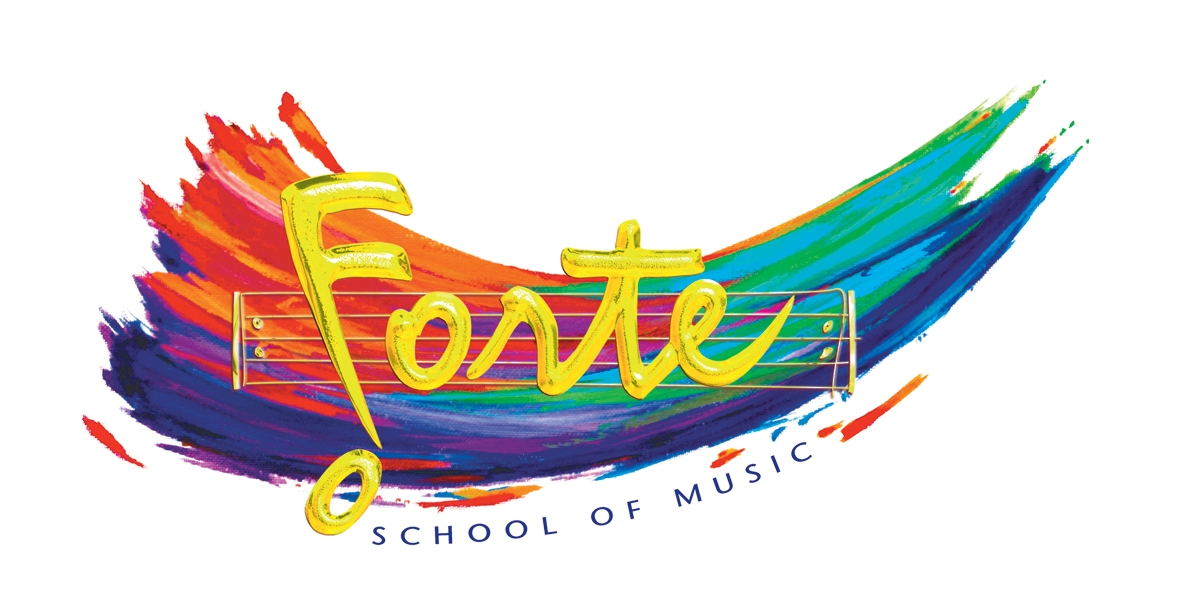


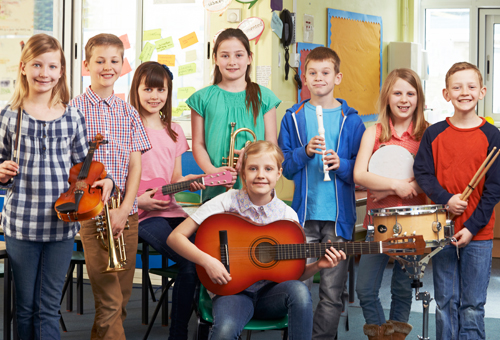

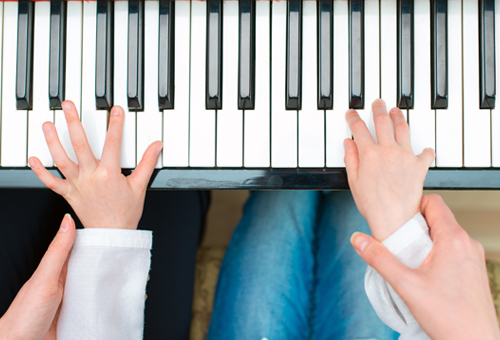



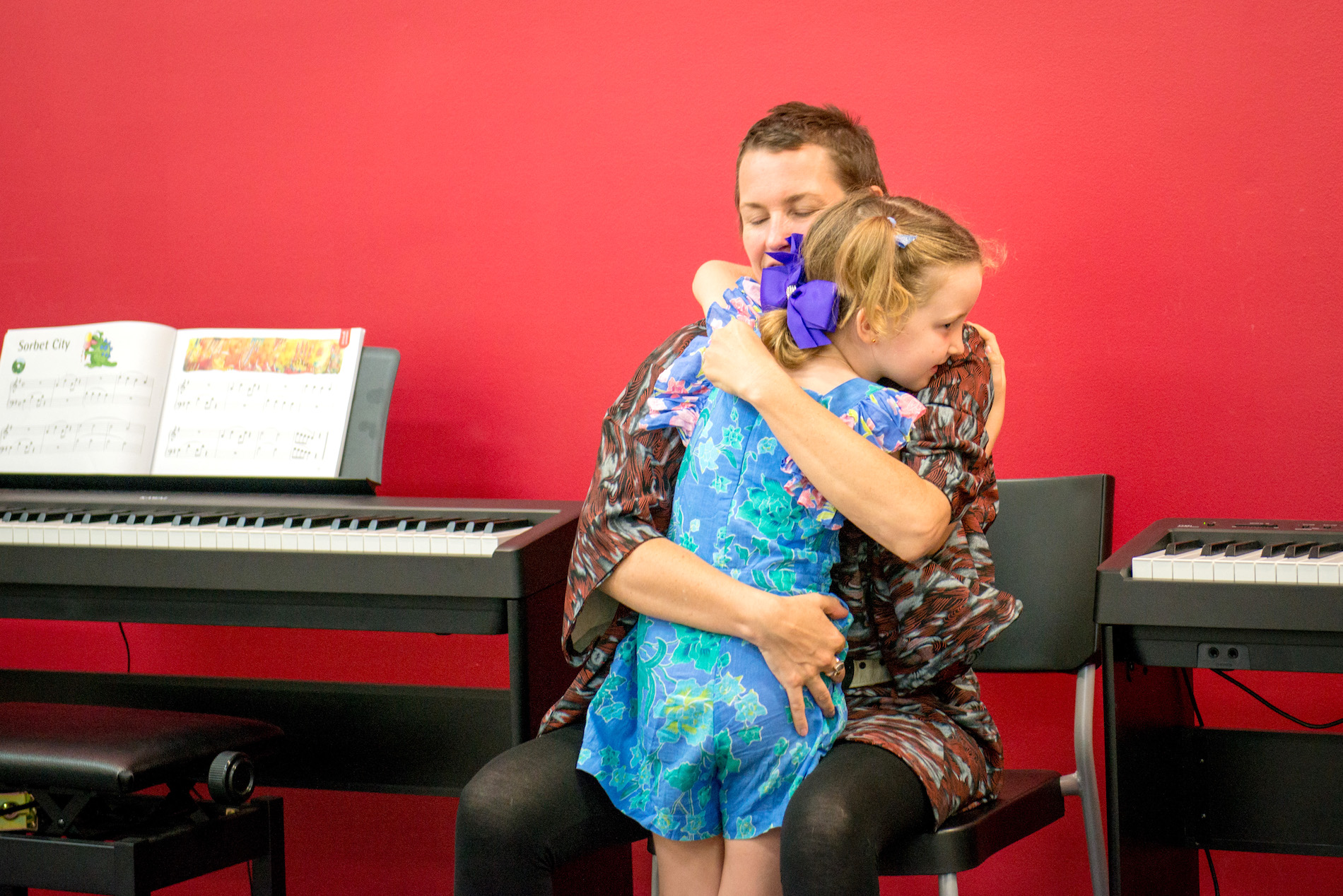



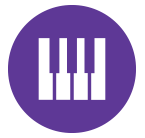
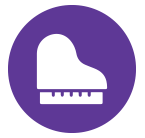

– SANDY